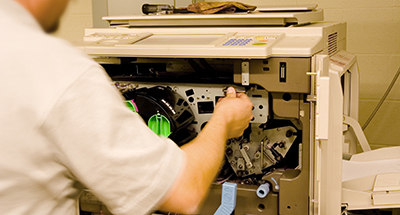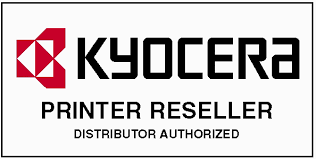- How can we lay a solid foundation for the future?
- How do we systemically get to be a top tier company?
- How can we push our median profit margin well above the 6.5% survival level of the typical US company?
- How can we avoid being disrupted by competitors that didn’t even exist five years ago?
Key to addressing these fundamental questions is understanding the ways in which CFOs are critical in this struggle. According to the American Productivity and Quality Center, an amazing 74% of organizations are currently engaged in a finance process improvement initiative to digitize accounting workflows and automate the processing of accounting documents. Why are they doing this?
There are two primary business drivers for these initiatives to create digital accounting workflows, and the CFO is key to both.
DRIVER #1 – PERMANENT COST REDUCTION
According to the Harvard Business Review, to create cost reductions that are permanent rather than temporary, organizations need focus on four areas:
- Outdated Requirements: How have the business requirements evolved since you last fundamentally redesigned this process? How would you design the process differently today, to meet today’s needs?
- Manual processes. Where do you use people to process forms or information repetitively, rather than do it electronically, with little or no human intervention?
- Processes with lots of exceptions. Do the routine 90% of items cost much less to handle than the exceptional 10%? What would it take to do away with the exceptional ones?
- Processes that create bottlenecks: Could you save money by shifting the time of day, week, or month that you undertake certain tasks so that work flows more smoothly and so there are fewer deadline created crises?
Five processes involving accounting documents are core to most finance departments:
- Accounts Payable
- Accounts Receivable
- Financial Close Process
- Procurement & Purchasing
- Vendor Management
What do these have in common? They are all: 1) document-intensive; and 2) must integrate with your broader financial and/or ERP (Enterprise Resource Planning Systems). Your ability to automate them and reduce cost – your key to moving from a bottom performing finance organization to a top performing one – rests digitizing accounting documents and using these documents to drive digital accounting workflows. CFOs need to lead the effort to automate these core financial processes.
| Financial process | Document challenges |
| Accounts payable | Automating accounts payable processing cannot occur without strategy to capture documents that arrive from multiple locations and in widely varying formats. Accounts payable automation is key to getting early payment discounts |
| Accounts receivable | Disconnected and manual contracts, billing, sales order, and dispute resolution processes |
| Financial close process | Endless, frantic and manual end-of-month spreadsheet reconciliation |
| Procurement and purchasing | Manual purchase order processes disconnected with finance and ERP systems |
| Vendor management | Manual vendor onboarding
No central view of relationships with key business partners |
DRIVER #2 – VALUABLE, DATA-BASED INSIGHT
C-Suites need to drive finance improvement initiatives down through their organization not just because they can save money and not just because customer needs require it, but because the digital information within digital accounting workflows are a rich and untapped source of the information and intelligence that is needed to drive improvements throughout the organization AND because so many other business processes depend on what goes on in finance. Demands are rising for finance executives to playing a more fundamental role in the transformation of the business and to provide the information needed to document and drive that change.
Per Mary Driscoll in the APQC blog:
“Business managers are changing their tune when it comes to what they want from finance. They now insist that finance re-imagine itself and deliver a step-change in the quality and relevance of insights it generates….Finance is expected to keep pace with the enterprise’s data-driven race toward competitive advantage.”
Once financial information is in digital form, and once these core processes are automated, financial information can be a rich source of intelligence to fuel strategic initiatives focused on enhancing customer experience and business transformation. And the CFO can become a leader in the drive to eliminate paperwork, automate core business processes throughout the organization, and transform the business.
















Follow Us
(800) 682-6558